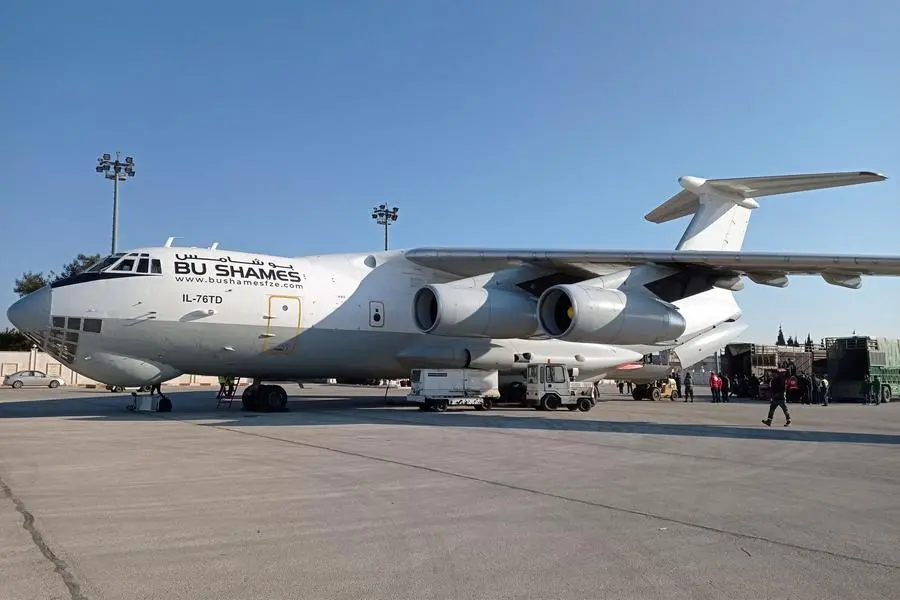PHOTO
Saudi Arabia hopes to send medical volunteers to areas of Syria rocked by the recent earthquake that killed thousands in the war-torn country, an official told AFP on Monday.
It has sent aid to both rebel-held and government-controlled parts of the country in the aftermath of the 7.8-magnitude tremor that struck southeastern Turkey and northern Syria on February 6, killing more than 44,000 people.
On Monday, the King Salman Humanitarian Aid and Relief Centre announced nearly $50 million in additional relief to both Syria and Turkey.
The new pledges, unveiled at the start of a two-day humanitarian forum in the Saudi capital, include a project that could send Saudi medical volunteers to Syria for the first time, said Dr Abdullah al-Rabeeah, the centre's supervisor general.
"On the medical side, one of the projects we signed in the forum was related to actually the Syrian territories, because they are actually short of mobile clinics," Rabeeah said.
"That's the first phase, and we hope that we'll see our Saudi volunteers on the ground."
Last week a Saudi plane carrying aid landed in Syria's second city Aleppo -- the first in more than a decade of war.
Saudi Arabia has sent 14 flights to Turkey and Syria so far, and mobilised some $200 million through government allocations and fundraising for the relief effort, Rabeeah said.
"We did not see from the fundraising process in Saudi Arabia... any differentiation between the two populations, whether they are Syrians or Turkish," he said.
"We did not see the diplomatic or the political side affecting the humanitarian side."
Saudi Arabia's foreign minister said on Saturday that a consensus was building in the Arab world, that a new approach to Syria requiring negotiations with Damascus would be needed to address humanitarian crises including the quake.
"There is a consensus within the Arab world that the status quo is not working and that we need to find some other approach," Prince Faisal bin Farhan told the Munich Security Conference.
"What that approach is, is still being formulated," he added.
A policy change could also help resolve the Syrian refugee crisis in Jordan and Lebanon, he said.
"That's going to have go through a dialogue with the government of Damascus at some point, in a way that achieves at least the most important of the objectives," including refugee returns, he said.





















